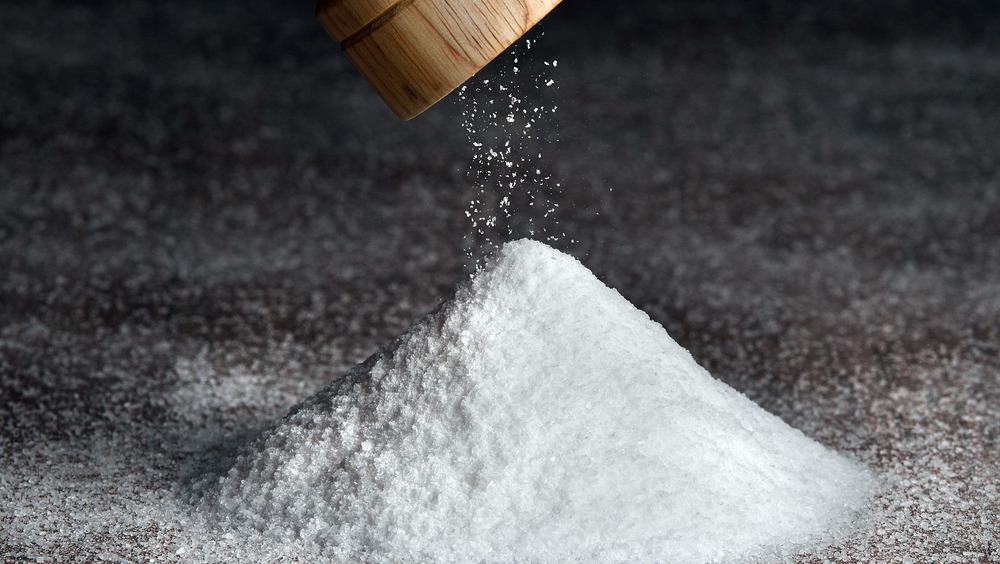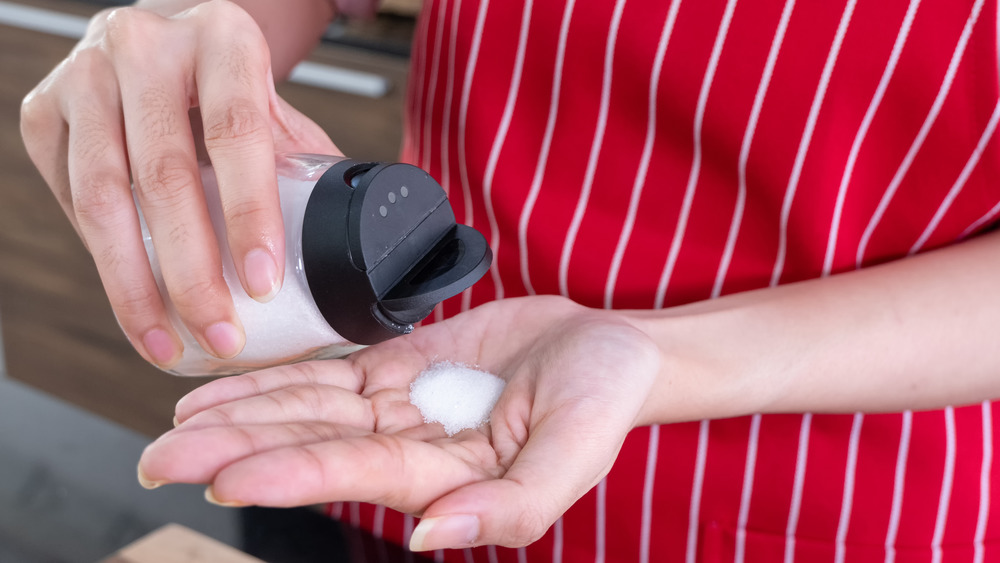This Is Why Salt Never Expires
It happens every time we clean out the spice cabinet. We look at the expiration dates and notice that our canister of Morton's salt is two years older than the use-by date printed on it. Do we toss this cooking staple or take our chances? Clearly, if we've been using it for this long and nothing has happened, it can't be bad, right? Does salt actually expire?
First, WebMD notes that labeling food with an expiration date is actually voluntary for the most part. The only products that are mandated by federal law to feature an expiration date are baby formula and certain baby foods, and some states also require grocery stores to remove milk that has reached its listed expiration date. According to Real Salt, while a salt container may have an expiration date on it, it may not actually expire unless it is a sea salt that contains water or is iodized. Salt that is natural, meaning nothing has been added to it, will never go bad and never lose its potency. In fact, the site points out that salt has been in oceans and in rocks for millions of years before it was mined. But why doesn't it go bad?
Salt's shelf life is tied to its preservative properties
The reason why our table salt never goes bad is tied to salt's preservative properties. According to History.com, salt and its ability to preserve was first discovered by the Egyptians who used it to preserve meats and their mummies that they might ship down the Nile River. Why is salt able to increase a food's shelf life? Salt is devoid of water and can actually absorb moisture from foods that would otherwise create the perfect environment for bacteria to grow. This is why your natural salt does not go bad: bacteria and microorganisms aren't able to accumulate and spoil it.
That said, iodized salt, which contains iodine, only has a shelf life of about 5 years. This chemical additive will break down over time, so it is important to pay attention to your iodized salt's expiration date. But Real Salt also notes that salt can still become a victim to its elements, soaking up steam and odors that impact flavor, depending on how it is being stored. They suggest keeping your salt in an airtight container to ensure its longevity.

